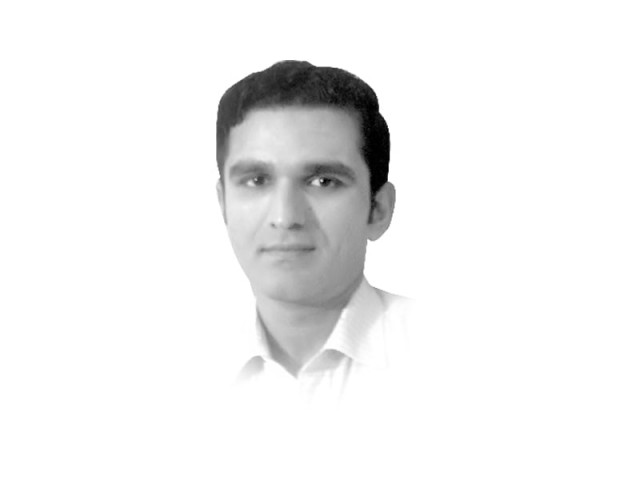‘The terrorists can’t be Muslims’
We must accept that some Muslims are terrorists, just like some Christians and Hindus are terrorist and so on.

The writer is the Chairperson of the Department of History, Forman Christian College and tweets at @BangashYK
When asked, a number of my students usually claim that these terrorists cannot be Muslims. When asked why, they argue that ‘Muslims cannot kill Muslims’. Lest this article become a history lecture, it should suffice to note that this is hardly the first time Muslims have killed Muslims in a large number. There have been numerous incidents of Muslims killing Muslims and even in our own history, the Ghorids killed the Ghaznavids, the Mughals killed the Pathans, the Mughals killed one another and various Muslim princes fought against one another — most notably, the Nizam of Hyderabad repeatedly fought against Tipu Sultan. An overwhelming majority of these incidents took place where there was absolutely no non-Muslim interference and it was simply warfare for power, lust, etc. Therefore, Muslims have killed Muslims in the past and there is no reason why this phenomenon should not be present now.
Related to this denial that the terrorists cannot be Muslims is the assumption that surely they must be ‘someone else’. The ‘tattooed terrorist’ is usually the prime evidence, since a Muslim would never get a tattoo. However bizarre finding a tattoo on the body of a terrorist might be, the thought that this tattoo might predate the person’s terrorist indoctrination, or the fact that in Uzbekistan (from where the terrorists might have come), such tattoos are fairly common, rarely crosses the sceptic’s mind. The fact that security personnel have found pornography and male potency drugs — also against the teachings of religion — would further strengthen the claim of them not being Muslim — until, of course, one self-examines.
Undoubtedly, citizens of other countries, and people from other religions, can and do carry out attacks against Pakistan, but assuming that ‘all’ terrorist attacks in Pakistan are carried out by non-Muslims is ludicrous, in the least. So, obviously, Indians, Americans and Israelis feature prominently as the culprits, and soon Martians might even make an appearance in the minds of these sceptics.
More significant, however, is what claiming that ‘they are not Muslim’ implies. When Pakistanis say that the terrorists are ‘not Muslim’, they are doing exactly what the terrorists are doing — deciding what is right and wrong in a religion and marginalising dissent. So, for a liberal Pakistani, the Taliban are not Muslim and for the Taliban, the liberal Pakistani is not a Muslim — what difference is there between these two approaches? Of course, those who criticise the Taliban take a more holistic view of religion and point out its peaceful elements, yet, completely rejecting those who do not agree with this version as ‘Muslim’ is harmful. The Taliban, and other such groups, have a particular view of religion. It might not be the best view, but it is still a Muslim view and has some public support. Unless we accept that they too are Muslims, we cannot sincerely argue with them on the finer points and convince them to change their ways. Completely rejecting such an ideology as something alien to religion is making its opposition and eradication difficult, I believe. This ‘owning’ of the problem of interpretation is the first step towards stemming this ideology.
So, who are these terrorists then? Here, I do not want to posit that all Muslims are terrorists, but that we must accept that some Muslims are terrorists, just like some Christians are terrorists, some Hindus are terrorists, some Jews are terrorists, and so on. Finding fantastic excuses and ignoring the issue will not make it go away; acceptance and engagement with the idea will.
Ultimately perhaps, we need to also look at ourselves when we think about this question. Do our ways of thinking, behaviour, attitudes and actions exhibit us as extremists? A day spent in observing our surroundings might give us some answers.
Published in The Express Tribune, October 8th, 2013.
Like Opinion & Editorial on Facebook, follow @ETOpEd on Twitter to receive all updates on all our daily pieces.















COMMENTS
Comments are moderated and generally will be posted if they are on-topic and not abusive.
For more information, please see our Comments FAQ